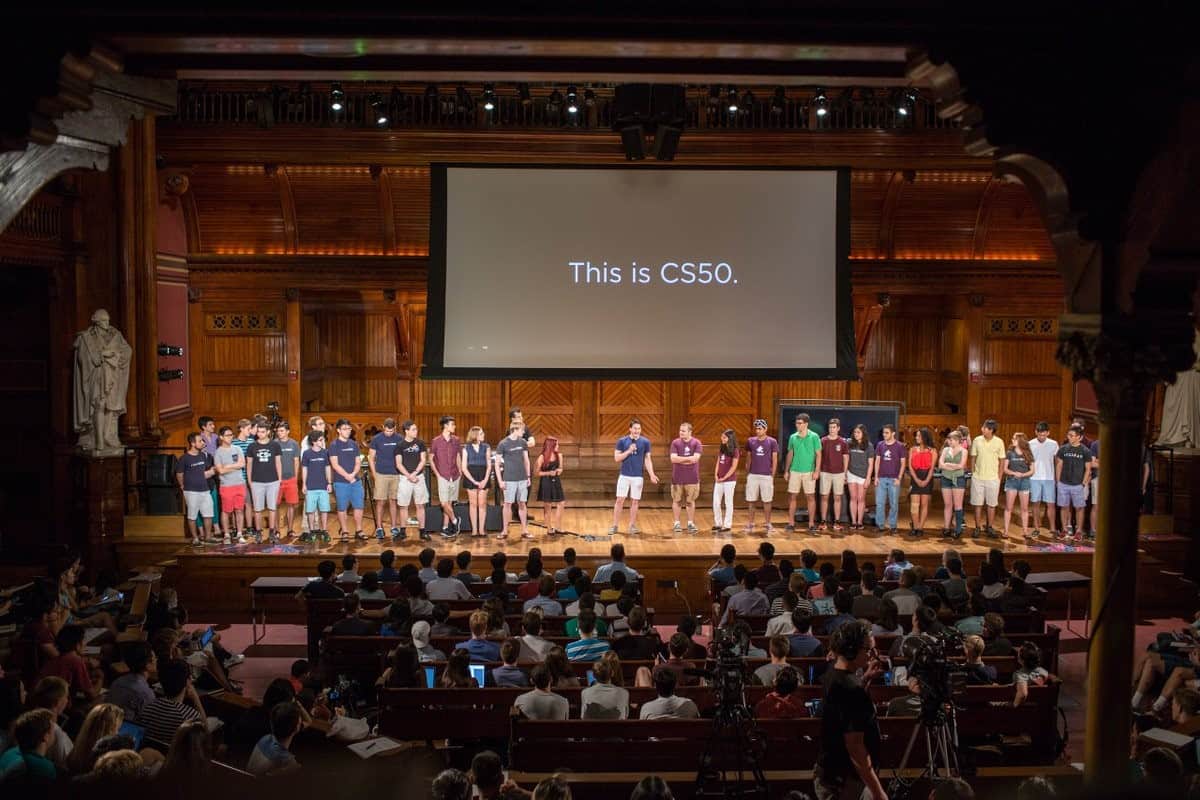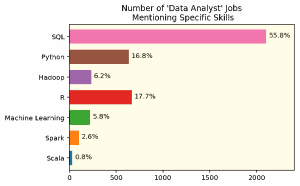Free Online Resources to Help Build Your Skillset | IFG

7 min read
Published:
Updated:
IW
IFG Staff Writers
The global health crisis instigated by the coronavirus outbreak has led to world governments adopting strict social distancing policies. As a result, we’ll soon have a lot of time on our hands over the next few months.
And while many of us will find ourselves at the mercy of Netflix, we must also be aware that the economy is facing an inevitable downturn, which will lead to downsizing as companies look to cut costs to stay afloat. On a global scale, Muslims are already 20% poorer than the rest of the world, meaning that we will be one of the first communities to be affected in an economic crisis.
Now is the time to start thinking about building up a new skillset that could make you indispensable in a soon-to-be challenging job market – or set you up to found your own startup (which IFG.vc can then potentially fund for you). Whether you’re a seasoned professional getting used to ‘WFH’, a university student adjusting to online classes, or just someone who wants to pick up a new skill, here are 7 free online courses to help you level-up while we #stayhome.
The kind of skills that are taught below (for free) will form the bread and butter of our world in the decades to come. Some of these courses will be hard and many won’t stick with it – but if you are among the few that do – the opportunities are endless.
If you’ve ever wanted to get into computer programming, CS50x by Harvard University is one of the best places to get started. The lectures you will see online are the same that are delivered to undergraduates at Harvard University. The course has no pre-requisites and the instructor is a master at keeping students engaged with the material.
While you will get a taste of programming in languages like C, Python, SQL, and JavaScript, the course is more structured towards imparting programming concepts rather than focussing on any one particular language.
Although you can watch all the lectures on YouTube, it is better to sign up for the course (for free!) on EdX. This is because doing so will get you access to practical assignments, which will re-enforce the concepts that you learn along the way. It will also get you connected to a very active online community of fellow learners.
The best part about the course is the final project where students are given a free hand to implement a CS project based on the skills you have learned.
The project could be the prototype of an app, a mobile game, or a computer software. And if you feel your prototype has potential, you could even scale your project by applying for funding at IFG.VC. In this last year, we have invested over £3.5m in 10 start-ups. CS50 could be the first chapter in your start-up journey.
Artificial intelligence (AI) is ranked number 4 on LinkedIn’s list of the top 10 hard skills demanded by employers in 2020. And Machine Learning by Stanford University could be your jumping-off point towards a career in data analytics using AI.
Machine Learning is a branch of artificial intelligence. In rudimentary terms, it involves helping a computer automatically ‘learn’ from past data to perform specific tasks without giving it explicit instructions.
One example of machine learning is how Gmail has automatically ‘learned’ to identify and filter out incoming spam email from your inbox based on past data of how a spam email is supposed to look like. Automatic face recognition is another example of Machine Learning.
Because there is statistics involved, the course is a little more advanced than CS50. But the material only requires school-level math knowledge. The instructor also breaks down complex ideas and explains the math behind every step in a way that makes the material accessible to a diverse audience.
The course is taught by Professor Andrew Ng, a globally recognized thought leader in the field of machine learning and AI, who has previously co-founded and led Google Brain, which is an artificial intelligence research team at Google. He is also the co-founder of Coursera itself!
Although the course is free when you register through Coursera, you can purchase a £60 certificate upon completion to make your LinkedIn profile stand out to employers.
While ‘Design’ is a very broad term, Hack Design is a website that does a great job of bringing together all the different aspects of design under one umbrella to offer you a flavour of the various aspect of Design.
For example, one aspect of design is User Experience (or UX for short), which is the study of how a person, called the user, experiences a given product. When this product takes the form of a website, a UX web designer is brought in to optimize the user’s overall experience of the website.
UX Design is ranked number 5 on LinkedIn’s list of the top 10 hard skills demanded by employers in 2020.
Apart from lessons on UX, Hack Design also has advanced modules that offer a deep dive on other specific topics such as typography, UI, graphic design principles, interaction design, front-end design, and product design. If you are a beginner, there is no reason to fret -the first few lessons begin from scratch by laying out exactly what ‘design’ is.
There are a 100+ free lessons, containing curated content from contributors that include design professionals from around the world.
A popular Greek tradition is that Socrates was the wisest person who ever lived because he proclaimed, “I know that I know nothing”.
The same applies to one’s proficiency in Microsoft Excel. The wisest Excel users among us are those who understand that beneath the hood of this seemingly humble piece of software resides a deceptively powerful machine capable of automating routine tasks and carrying out complex financial modelling.
If you are someone looking to get a job in finance or consulting, it is imperative that you become proficient at navigating spreadsheets in Excel. A great place to start is the YouTube channel, ExcelisFun.
The channel contains playlists tackling different aspects of Excel. The Excel file used in each video is also available for you to download for free, so that you can follow along with each tutorial.
Whether you are a beginner or someone looking to delve deeper into the capabilities offered by Excel, this channel has something for everybody. You can check out a detailed guide on their playlists here.
SQL, or Structured Query Language, is an easy-to-learn programming language that allows you to work with big data.
A 2019 analysis of job postings for ‘data analyst’ roles on a job portal revealed that for jobs which listed specific languages, SQL was easily the most popular among employers:
Figure 1 -Source: DataQuest
While there are plenty of free courses on YouTube that will teach you the basics of SQL, SQLBot deserves a special mention because its website allows you to practice the concepts that it teaches within the browser itself, without the need to download additional software.
As you might have noticed from the previous chart, another language that is widely sought-after in data analysis is Python.
Python is a programming language which many experts believe is the language that serves as the best introduction to computer science for beginners. This is because Python as a language is very easy to read for first-time programmers.
If you have previously tried to learn programming using C or C++, you will be pleasantly surprised by how intuitive and simple Python code is in comparison.
Additionally, Python is also a very versatile language. This means Python has many different applications, some of which include creating websites, designing software, and conducting complex data analysis.
And while there are many resources online to get started with Python, a personal favourite is Python for Everybody, offered by the University of Michigan. There are no pre-requisites to the course, and it is designed for beginners.
You can register for video lessons on Coursera, but it requires a small payment. An alternative is to get started for free by visiting the course website, which covers the same material as the one on Coursera, including a textbook and accompanying YouTube video lessons (albeit with a lower production value).
To finish off our list, we’ll take a break from all the talk of AI, computers, and tech to focus on another sophisticated data processing system – the human brain.
With social distancing forcing many of us to spend an inordinate amount of time being cooped up inside our homes, we might find ourselves growing increasingly irritable and restless. This is perhaps as good a time as any to take a moment to step back and understand the science behind happiness, re-examine our mental health, and build up mental resilience.
The Science of Well-Being offered by Yale University is available for free on Coursera. The course examines the factors that determine your overall state of happiness and teaches you to identify the many tricks that the mind plays on us, all backed by scientific evidence. It will give you strategies to become more productive and mindful.
The final project invites you to ‘rewire’ your thinking process and behaviours with the goal of elevating your overall happiness. It sounds very vague and cult-ish but with a 98% approval rating, the course is among the most popular on the Coursera platform.
Author: Jazeb Ul Haq (IFG Staff Writer) – The writer is an incoming MBA candidate at the University of Oxford. You can connect with him on Linkedin.







